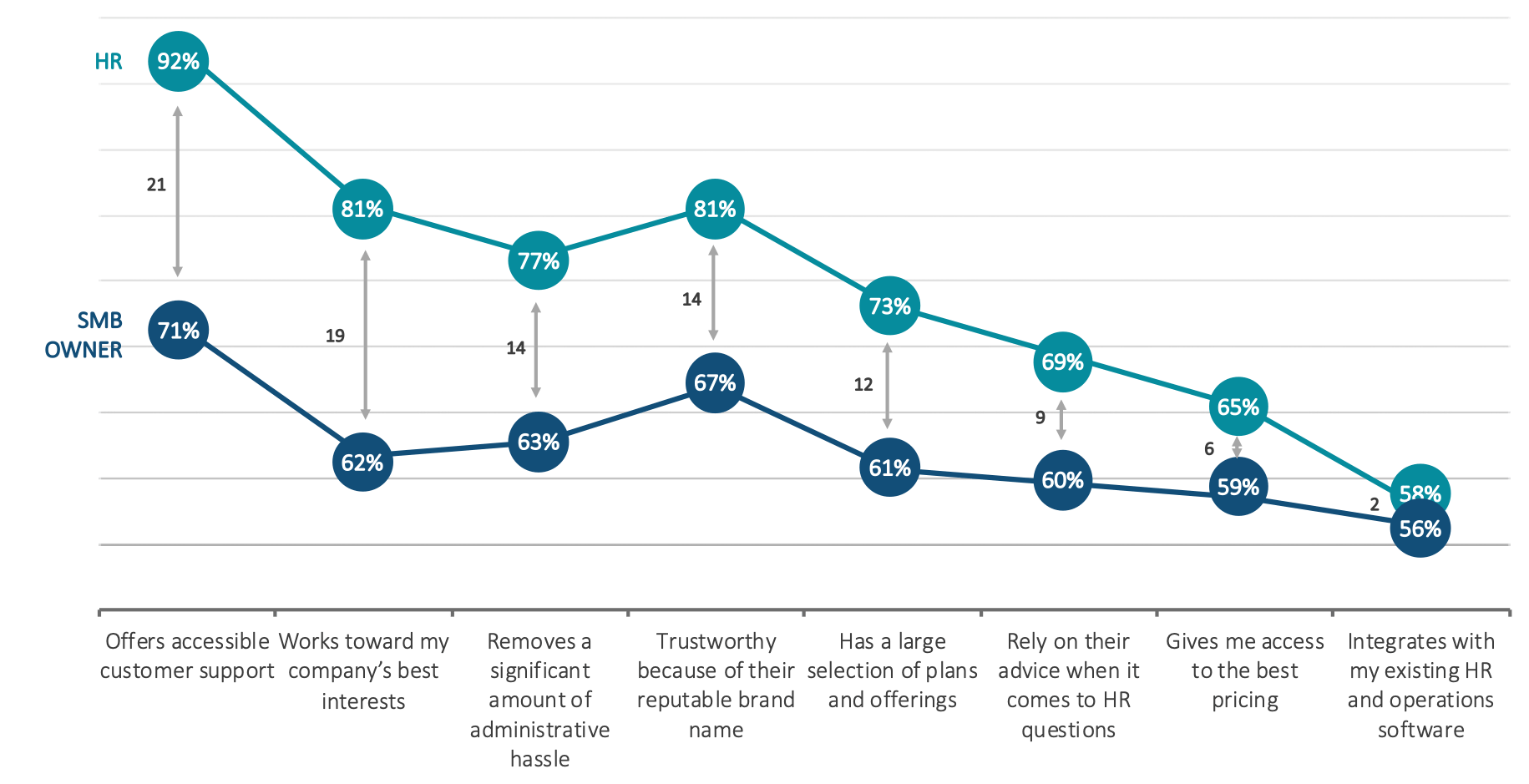Think Small to Win Big: How Carriers Should Approach Small Business Buyers at an Individual Level
Carriers work hard to drive customer satisfaction when it comes to their small business clients. To meet the needs of their small business clients, they often identify the different types of accounts and target them in unique ways. A blue-collar workforce might mean the business has different benefit priorities than a white-collar business. A young company may be more inclined to take its ben admin by way of technology. Carriers may be smart about how to approach different accounts, but that’s only the first step.
Within Businesses There Are People Too
To meet the needs of small businesses, it is important to remember that inside that account there are individuals making the decisions. And just like consumers, small business buyers have distinct communication preferences, servicing needs, and day–to-day pain points. For example, in our survey of employers, we set out to understand how decision-makers at small businesses see carriers, and how satisfied they are with different aspects of service. And, from what we saw that in the case of carrier perceptions, insurers may be missing out on key small business stakeholders – the owners.
Carrier Perceptions – Strongly/Somewhat Agree

Winning with HR, But Losing with Owners
As it turns out, in a relatively consistent pattern, the owners of small businesses who are tasked with managing employee benefits are less satisfied with carriers than the HR professionals who are charged with the same responsibility. So why are HR professionals happier with the carriers that provide their employees’ benefits than the owners of the businesses?
Though many small business owners are personally in charge of ben admin, they may have bigger fish to fry – or at least more fish. Even though owner decision-makers are typically running smaller sized businesses, entrepreneurs are naturally more removed from the day-to-day of working with carriers because they are busy with running a business. Whereas HR Professionals stake much of their success on the success of employee benefits implementation, the reality is that owners have less time to dedicate to their carrier relationships. HR professionals invest more time and effort in making those carrier relationships work, and so it’s a self-fulfilling prophecy – they do work. Rather than making your customers work hard to make your product work for them, you should be doing the heavy lifting for them.
Carriers must ensure they are adequately training support employees and setting up their servicing to delight SMB owners who have minimal time to dedicate to the partnership.
Lesson Learned
If you’re not smart on the unique buyers within your accounts, you’re missing out on the opportunity to tailor your messaging, communication, and servicing to their buying behaviors. The example above illustrates how Heads of HR and Business Owner decision-makers have differing perspectives on their carriers because the way they interact with benefits providers is inherently different. But that’s just one example. There are many ways in which distinct buyers at small businesses differ from each other and, to tailor their approach, carriers must first understand the decision-making process each of them goes through in their buying journey.
Do you know the best strategies and tactics to win SMB benefit buyers?
In surveying over 200+ small business employers and employees, conducting candid interviews, and tracking online conversations we identified core executive and HR pain points and opportunities. Download our report for:
- 5 actions to acquire and grow SMB accounts
- Tactical next steps for brokers and carriers
- More insightful statistics on employer and employee preferences





